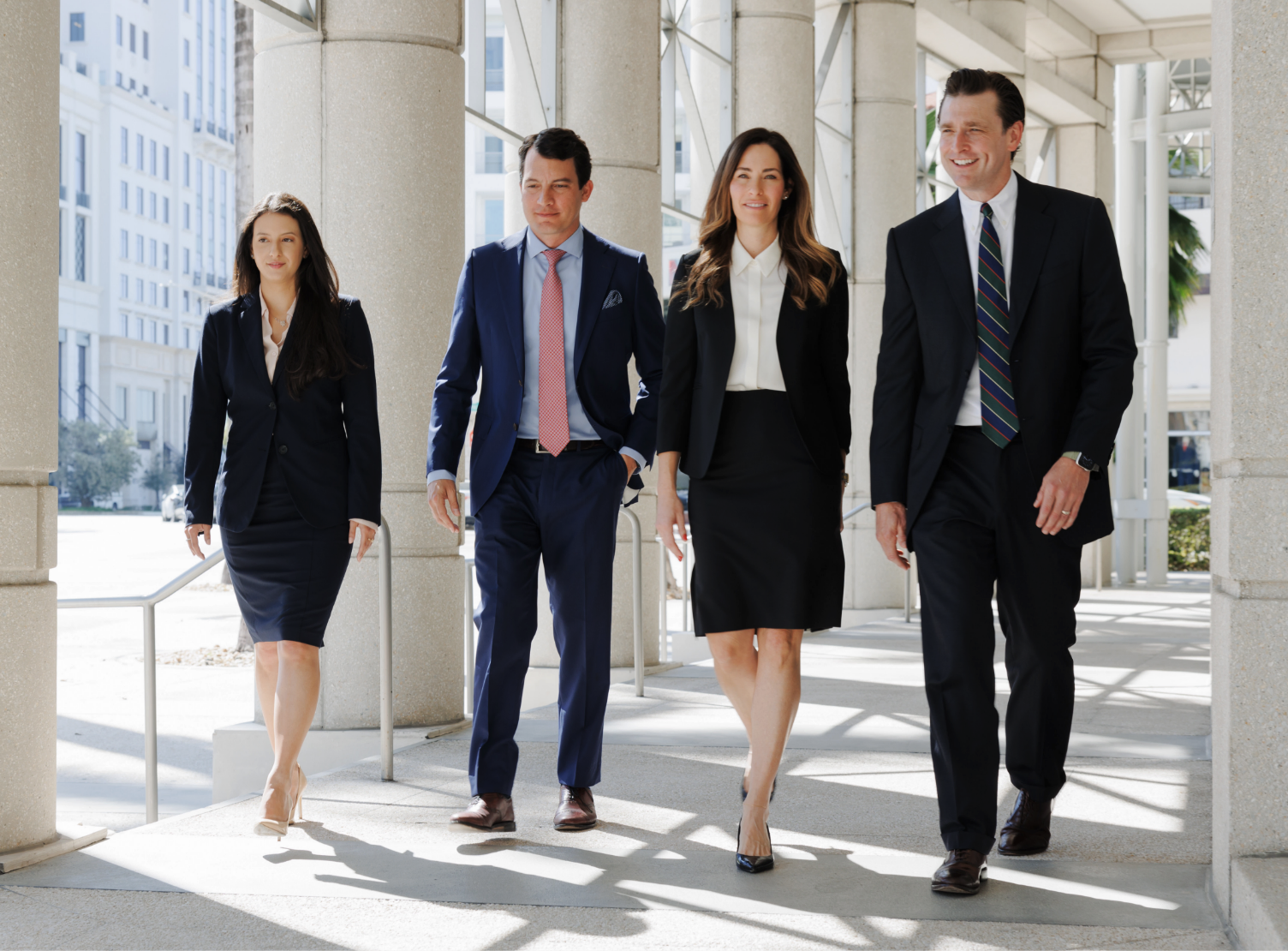 Blog Hero Image" width="1504" height="1110" />
Blog Hero Image" width="1504" height="1110" /> Blog Hero Image" width="1504" height="1110" />
Blog Hero Image" width="1504" height="1110" />
Loss of consortium claims for wrongful death in Florida recognize the loss of a relationship that results from the death of a loved one. The death of a loved one means the loss of all the good things about a family relationship – the companionship, protection, instruction, and personal connection you shared. All these losses can be summed up in the word consortium.
Florida law recognizes loss of consortium in wrongful death claims. In this article, the Coral Gables wrongful death lawyers at Maderal Byrne & Furst PLLC share what loss of consortium claims are, who can claim loss of consortium, and the requirements for proving a claim.
Consortium is defined as relationship or companionship. In the legal context, loss of consortium is the loss of a relationship that someone endures when their family member is hurt or dies as the result of a personal injury accident.
When you lose a close family member, you’re affected in every way. Even though the surviving family member may not be physically hurt, they still suffer a great, personal loss. Certainly, there are financial challenges, but your biggest loss is personal.
Wrongful death loss of consortium compensation recognizes this loss. If you have lost a spouse, parent, or child to wrongful death, you may qualify to claim wrongful death compensation, including loss of consortium.
Florida Statutes § 768.21 details the damages available in wrongful death claims. The statute doesn’t directly use the word consortium. However, the law defines what loss of consortium is in explaining allowable damages. Additionally, Florida courts recognize loss as consortium as damages in wrongful death, see ACandS, Inc. v. Redd, 703 So. 2d 492 (Fla. Dist. Ct. App. 1997).
Parties who can claim loss of consortium for wrongful death in Florida include:
In wrongful death, a surviving spouse may recover for loss of companionship and protection as well as for mental pain and suffering.
Minor children may recover for loss of parental companionship, instruction, and guidance.
When there is no surviving spouse, adult children may recover for loss of parental companionship, instruction, and guidance, plus mental pain and suffering.
The parent of a deceased minor child may recover for mental pain and suffering.
If there are no other survivors, the parent of a deceased adult child may recover for mental pain and suffering.
The law defines loss of consortium a little bit differently for each relationship because a spousal relationship is different than a relationship between parent and child.
For a loss of consortium claim to be successful, claimants must understand the requirements for proving loss of consortium as well as how to determine the appropriate amount of compensation.
To prove loss of consortium in Florida, the surviving family member must prove the following:
Determining damages for loss of consortium has always been a difficult question. How do you value the loss of a family member and all the benefits of a supportive family relationship? Since first recognizing loss of consortium damages, courts have struggled to answer this question.
One factor often looked to in determining compensation is the life expectancy of the deceased and survivor. Age is one measure of the time lost with the family member. See Stanford Fruit Growers, Inc. v. Frazier, 27 So. 2d 906 (Fla. 1946).
Age may be an objective measure of the loss of familial relationship, but it is just one factor. Other factors that may impact the amount of a loss of consortium claim include:
There is no specific amount that applies to all claims. Rather, compensation is specific to the situation and person. Valuing the amount of loss of consortium compensation requires an individual look at the circumstances and how the survivor’s life has changed.
In Florida, loss of consortium compensation is not exclusive to wrongful death claims. A spouse may seek loss of consortium compensation when their spouse suffers a disability because of the negligence of another.
The right is derivative – the spouse must have a cause of action against the same defendant. In addition to spousal relationships, a loss of consortium claim may be brought by a child because of a significant, disabling injury to a parent, and a parent because of a minor child’s injuries.
(See Gates v. Foley, 247 So. 2d 40 (1971), explaining that loss of consortium does not reflect the net earnings that a spouse may have received, but rather the companionship and fellowship of the spouse including affection, solace, comfort, sexual relations, society and assistance.)
If you have lost a loved one in wrongful death, a loss of consortium claim recognizes your personal loss. At Maderal Byrne & Furst, we represent clients in claiming wrongful death compensation.
We are knowledgeable in the requirements for proving a case and how to value your damages for loss of consortium. Contact us for a personalized consultation about your case and start your claim for compensation.